Mental Game Blueprint: Visualization for Peak Performance

Harness the power of mental rehearsal to prime your mind, sharpen focus, and perform under pressure.
Mental training separates good athletes from great ones. Visualization isn’t daydreaming—it’s a structured rehearsal that engages the same neural pathways as real competition. By crafting pre-game routines, detailed imagery scripts, and in-game focus cues, you’ll build unshakeable confidence and deliver peak performance when it matters most.
Why Visualization Drives Results
Studies by the American Psychological Association show that combining mental rehearsal with physical practice can boost athletic performance by up to 30%. When you “see” a perfect swing, hear the crack of the bat, and feel the crowd roar, your brain wires those sensory inputs into muscle memory. This reduces pre-game jitters, improves decision-making, and creates consistency under stress.
Step 1: Designing Your Pre-Game Visualization Routine
A reliable mental ritual signals to your brain that it’s game time. Follow this three-part sequence:
- Breathing & Relaxation (2–3 minutes)
- Practice the 4-7-8 breathing technique: inhale for 4 seconds, hold for 7, exhale for 8.
- Perform a quick progressive muscle relaxation from toes to forehead.
- Sensory-Rich Imagery (4–5 minutes)
- Visualize stepping into the batter’s box or taking the mound.
- Include sights (stadium lights), sounds (crowd buzz, bat crack), and tactile feelings (knob of the bat, dirt under spikes).
- Emotional Anchoring (1–2 minutes)
- Recall a past peak moment—game-winning hit or strikeout.
- Anchor that confidence with a simple keyword or physical cue (tapping your helmet).
External Resource: Explore guided imagery techniques at Psychology Today .
Step 2: Crafting Detailed Mental Scripts
The quality of your mental imagery depends on sensory detail. Break your script into five elements:
- Visual: See the path of the ball, the rotation of your body.
- Auditory: Hear the umpire’s call, your coach’s encouragement.
- Tactile: Feel the grip pressure, the texture of your glove or bat.
- Kinesthetic: Sense muscle engagement, weight balance, explosive extension.
- Outcome: Witness the result—ball soaring into the outfield or batter rung up on strikes.
By scripting each component, you create a vivid “mental movie” that primes your subconscious to execute under pressure.
Step 3: In-Game Focus Cues
Once the game starts, shift to micro-anchors—short mental resets between reps. These keep you locked in without overthinking:
- “See the Seam”: Before every pitch or swing, lock eyes on the ball’s seam to sharpen tracking.
- “Rhythm Reset”: Bounce the ball three times in your glove to reset breathing and posture.
- “Finish Strong”: After every play, inhale deeply, replay the perfect mechanics for 5 seconds.
Use a wristband or small tape marker as a tactile reminder for each cue.
Integrating Mental Training into Your Weekly Plan
Consistency builds mental endurance just like physical training. Below is a sample weekly schedule:
| Day | Physical Session | Mental Focus |
|---|---|---|
| Monday | Live batting practice | 5 min pre-session imagery |
| Wednesday | Infield/outfield drills | 3 min post-drill reflection |
| Friday | Bullpen or live BP | 5 min breathing & visualization |
| Sunday | Simulated game scrimmage | Full routine + in-game cues |
Track your mental progress—note confidence levels, stress spikes, and focus quality in your training journal.
Troubleshooting Common Roadblocks
- Mind Wandering: Start with 2–3 minute sessions and gradually extend to 10 minutes.
- Vague Imagery: Watch video highlights of your best performances just before visualization.
- Emotional Discomfort: Pair imagery with positive self-talk (e.g., “I am prepared, I am ready”).
Patience and practice sharpen your mental skills over time.
Additional Resources
- Headspace for Athletes: Guided sports meditation and breathing exercises.
- The Mind Gym by Gary Mack: Strategies for building mental toughness in sports.
- Biofeedback Tools: Apps like HeartMath to monitor heart-rate variability and stress.
Elevate your mind game with customized visualization coaching, live video check-ins, and ongoing performance feedback through Next Swing Baseball’s virtual training analysis programs. Collaborate with our sports psychologists and hitting instructors to develop mental scripts and focus routines tailored to your style and goals.
Ready to lock in unshakeable confidence and perform under pressure?
https://nextswingbaseball.com/virtual-training
Sources
- American Psychological Association, “The Power of Mental Rehearsal in Athletes.”
- Psychology Today, “Mental Rehearsal: An Athlete’s Secret Weapon.”
- Vealey, R. S., “Mental Skills Training in Sport,” in Advances in Sport Psychology, 2007.
